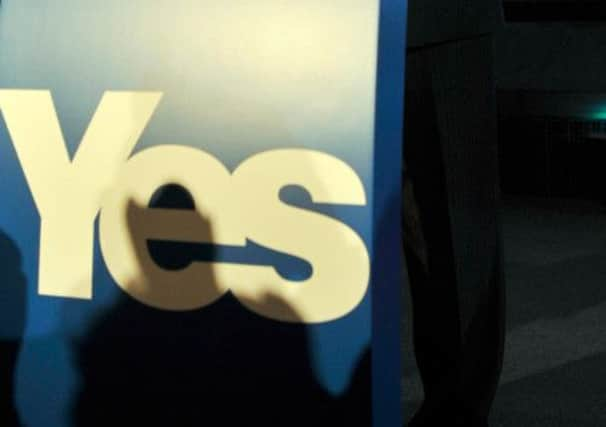Andrew Wilson: Timing is everything


I have often lived in moments where the world was ablaze with energy, activity and haste and all around people were running fast to get to destinations they were sure they had to get to in work, in business and in life. Rarely were these moments of progress and happiness. “Busy fools syndrome,” a wise colleague of mine once called it. Common in most mortals, but fatal in leaders.
Campaigners in the Scottish referendum story would do well to keep this reality close to heart. I detect in the waters and bunions of the Scottish body politic a degree of triumphalism in the No campaign (“it is not enough to win, we must win well”) and, well, the opposite on the Yes side. Both, I humbly suggest, are very wrong to strike such a pose. Just ask a former Prime Minister.
Advertisement
Hide AdAdvertisement
Hide AdHarold Wilson has long interested me for a variety of reasons. Not least his name approximates to my dad’s but few kids at school in Wishaw bought my canard that dad was, in fact, the former Prime Minister of the United Kingdom. You could see their point as he never smoked a pipe. Hang on, neither did Harold, but I digress.
One of the most quoted phrases in politics was one of Wilson’s. It was, of course, that “a week is a long time in politics”. And if that was true then imagine the currency of it more than half a century later in a world in which the tides of news and public opinion can turn in seconds.
Reflecting on this, my advice to all is this: whenever commentators, politicians or plain old campaigners are tempted to call a result with more than 457 days to go, don’t. Stand back from the moment and consider the whole story in context.
In 1997 Labour’s landslide election led to a quick referendum on the back of a hastily drafted White Paper: haste evidenced, for example, in estimated costs for the building at Holyrood of £40 million which – at less than a tenth of the actual outcome – was, erm, slightly wrong.
This, however, secured an historic approval vote and became law within months to allow elections to a new Scottish Parliament just over two years after that victory.
It was simple enough to deliver when considered in historic context because very little constitutional authority transferred from London to Edinburgh. The Scotland Act of 1998 basically codified the existing powers of the Secretary of State for Scotland and empowered a Scottish Parliament to check them. Progress indeed, but hardly shattering, although plenty of Tories told us it would. Funny how so many former Home Rulers are happy to join them in the same fibs now.
But once again step back and reflect on the next steps in the journey. The SNP landslide election was just over two years ago. With that came a mandate for a referendum that Westminster politicians and (ironically) their party colleagues in Holyrood, spent 17 months and nine days telling us was illegitimate and illegal. That is until it wasn’t, when the Edinburgh Agreement was signed in October last year.
Meantime, the Scottish Government and its officials have been working on their own White Paper setting out their vision of what exactly it is they will ask people to vote Yes to next summer. Opponents wanted, and got, a near 18-month debate on process and now they are successfully replacing it with a debate on process detail. I often think it would be like saying to Nye Bevan “Yes, yes this NHS idea is all well and good but how many bedpans will you need in Doncaster and who is going to pay for them?”.
Advertisement
Hide AdAdvertisement
Hide AdIt is fair to say that in comparison to possibly all of the 142 countries who have declared their independence and joined the United Nations since 1945, the Scots will demand, and will get, more detail, clarity, structure and certainty than any new country has ever had before it determined to place its first step on its own road. I guess it’s the Scottish way.
But as that picture emerges we will see it represents a world of a difference from the fear, uncertainty, disruption and doubt that opponents like to paint. It will represent power as close as possible to the people that power effects, and control from Edinburgh of the decision to keep sharing sovereignty and administration sensibly and amicably with the state structures we are emerging from.
And then, of course, advocates will be able to campaign, evangelise and persuade on the reasons, hopes and opportunities that go with it. Or, if they oppose it, the opposite.
Slowly, but surely, in a very methodical, deliberate and cautious Scottish way the truth of the choice we face will outshine the busy fools trying to cloud our minds with 1001 reasons why we can’t. Then, and only then, will the reasonable majority of the population fully engage in how they will wish to exercise their choice. So now is a good time for progressives to hold their nerve and focus, and remember what it takes to win. Timing is everything.
Twitter: @AndrewWilsonAJW